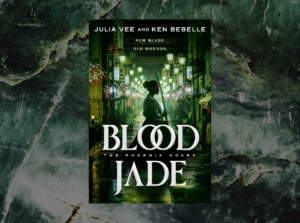I was inspired by this prompt from Chuck Wendig’s site, Terribleminds. (If you aren’t familiar with Wendig, I highly recommend you check out his site. He’s crass, crude, and irreverent, but he’s a genius. And hysterically funny.) I chose the prompt of Penthouse Apartment During the Apocalypse. In the process, I managed to break the few rules Wendig set for the prompt and write a zombie story. I don’t even like zombies.
***********************
New York had crossed the gates of hell and all I could think about was how I’d finally gotten my wish: to see the inside of Gabe Carter’s penthouse apartment. Of course, when I’d imagined it, there’d been a lot more candles and romance and a lot less fear and terror.
New York had crossed the gates of hell and we sat above it all, watching the fire and madness like sailors in the crow’s nest. Central Park was engulfed in flames, thick, black smoke curtaining us off from the rest of the city. People fled on foot and on bicycles, leaving their cars to choke the street below, doors open and engines running.
It had started a little after 11 am when the reports first came in. A helicopter had crashed in Central Park. A man came in off the street and told the barista. His eyes were wide and he flung his hands around. It was like a collective gasp as everyone in the coffee shop tensed, many of them no doubt reliving the World Trade Center Attack.
I set my Latin book aside as the barista switched off MTV in the corner and tuned the TV to a local news station. We all watched as images of the wreck flooded the screen. The twisted heap of helicopter was burning, oozing oily black smoke into the air. The grass around it was scorched, the camera pulling back to reveal fire crews already on the scene. With typical New York aplomb, we nodded to ourselves and tried to go back to our own business.
My cup all, but empty, I threw it in the trash. Picking up my things, I joined the stream of people outside, walking towards Central Park, like moths to light. I imagined that, on a selfish level, many people are going as much to indulge in the spectacle as to “get their story for the grandkids”. I was there when the helicopter crashed.
I heard my name above the tide of noise. “Katya!” I turned and spotted him. Gabe Carter. For two people who existed in two completely different social circles, we saw a lot of each other. Whether it was a poetry reading down the street, a rooftop open mic, or an indie band at the underground club on the next block, we could be sure that the other would be there. Gabe was a good conversationalist; far from being spoiled and petty, I found him intelligent and thoughtful. He had this thing, too, that I thought of as a bait-and-lure; he’d walk into a room, call out a word, sometimes a title, sometimes a person, sometimes a place, and whoever answered him correctly, he’d get their drinks for the rest of the evening. To me, it seemed that he was horribly bored with his life. So much money and no one and nothing to spend it on. I like to think he was constantly on the lookout for the one thing or one person who would give it meaning.
He stepped closer to me as the crowd grew, more people joining with every block we passed. “They said it’s a helicopter?” Gabe asked me.
“Yes. They’re showing footage of the wreck on the news.”
We moved slower and slower as somewhere ahead of us, a bottleneck formed.
“By the time we get there, there won’t be anything to see,” complained an old man behind us.
Gabe took my hand. “We’re not going to be able to close enough to see anything. Let’s go to my place and watch it from there.”
My heart jumped, as much from the touch as from the invitation. Screw the helicopter, I was going to Gabe Carter’s apartment. Me. Katya Rawlins.
We turned east through the streets, shouldering our way through the press of people coming the other way. It was quieter over here, away from the main body. As we walked, I noticed the buildings and cars changing. On my street, there are plenty of junky cars parked out front and a fair collection of neighborhood bums crouched in sleeping bags. Graffiti bedecks some of the buildings towards the rougher end. Here, though, there is the feeling of stepping into somewhere else. Going through the looking glass.
The doorman ushers us inside, welcoming Gabe by name. My shoes squeak on the lobby floor, the tiles cut from chunks of expensive black marble. We call the elevator and it descends to us almost immediately. Gabe slides his key into the slot and presses the button for the top floor. I worry that he’ll be able to hear how loudly my heart is beating in the cramped space.
We don’t talk as the elevator ascends. While I have grown giddier, he has grown more subdued. His mind is somewhere else. I’m torn between making a sound to remind him of my presence and staying silent.
The penthouse is even more beautiful than I imagined. Thick, pile carpeting spreads from wall to wall, a vast sea of white. The décor is tasteful; black wood, glass, and leather. I try to imagine my silly little Ikea couch in this place. Stifling a giggle, I slip off my shoes.
“You can see the park from those windows.” He gestures at the far wall before disappearing into a hallway. I walk slowly across the room, feeling the soft carpet squish with every step. Even the air smells expensive.
There are two black leather armchairs in front of the center window. I perch myself on the edge of one while I wait for Gabe to come back.
The fire has grown; whole sections of the park burn bright red in the late afternoon sun. I wonder why the fire department hasn’t been able to contain it. In the silence, I hear the sound of a television coming on in another room.
Following the noise, I come upon Gabe in the kitchen. His back is to me.
“…There is a mandatory evacuation for those homes within a five-block radius of Central Park…” The newscaster’s voice sounds shrill and tight.
On screen, a live video feed shows policemen setting up barricades along the perimeter, pushing back the crowd that’s gathered. Yet even as we watch, the officers go still. I have the sense that they’re listening to something. Everything writhes around them, but they are still. And then they’re moving again, picking up the barricades and throwing them into the crowd, attacking the people closest to them. People start to fall before the camera cuts back to the studio.
“…the authorities have nothing further to disclose about the situation in Central Park. At this time, we do not know what we are seeing…” The newscaster looks down at her hands. When she raises her eyes to the camera, they’re bright with tears. “Get out of New York”.
The feed cuts out and the network begins to roll commercials. Gabe still stands, quiet and unmoving. I touch his arm. He seems surprised like he’s forgotten who I am. Then his expression softens into sadness. “I shouldn’t have brought you here.”
“What do you mean?”
“Get out of New York, she said.” He shakes his head. “Katya, there’s no way out for us.”
He pulls down two tumblers and a bottle of vodka. He pours some of the alcohol into each glass before picking up his own and drinking it down.
“Did you feel it?” he asks. My glass is untouched on the counter.
“Feel what?”
“It’s everywhere. People already have it. Whatever is going on at the park, has spread further than they imagined. It’s everywhere by now.”
“I don’t understand,” I say.
“They’re so quiet, so docile. Just walking up to the slaughter.”
“You’re scaring me, Gabe.”
“I’m scaring myself,” he says. He looks at me with a wild expression, a look I’d never seen before. I take a step back. He watches me do it and opens his mouth to speak, just as we hear the sound of breaking glass from the other room.
The coffee tables lies shattered on its side. Above it, a man in the building staff’s uniform stands, his head tilted unnaturally. When he sees us, he shuffles forward, walking as if his legs have forgotten how to bend.
Gabe pulls a fireplace poker from the rack next to his faux fireplace. “Katya, go and barricade the door.”
I do as he says as Gabe holds the metal rod aloft. He places his body between the intruder and me as I cross the room.
I remember that man. He waved to me as we came in, not fifteen minutes ago. This world has gone mad.
As I drag furniture towards the elevator, sweat trickles down my temple. I don’t feel warm, only chilled. Then, there’s a sound like none I’ve ever heard in my life. It’s the sound of a person dying, a human that no longer knows how to be human. I turn and find Gabe standing over the body. The fireplace poker juts up from the chest of the body, Gabe’s hands still clenched tight around the handle. Finally, he lets it fall.
We build a barricade across the elevator. I cannot help, but think that even as we are closing the world out, we are also sealing ourselves in. We have made a tomb.
When it’s done, Gabe drags the body to the window and unlatches it. I watch him struggle with the man’s weight, but he does not ask me to help.
He washes his hands in the kitchen, rinsing the blood from his fingers three times. I know it’s a silly thing to ask, but I do anyway. “What do we do now?”
Gabe smiles, a pinched grimace, and leads me back to the window. “We enjoy our front row seat to the end of the world.”
Night fell and the sky glowed an angry red. The evening passed slowly as we sat and watched and ate and drank. But I knew it was the first of the last and the end would come slower than quicker.
I do not think the sun will rise in the morning.



